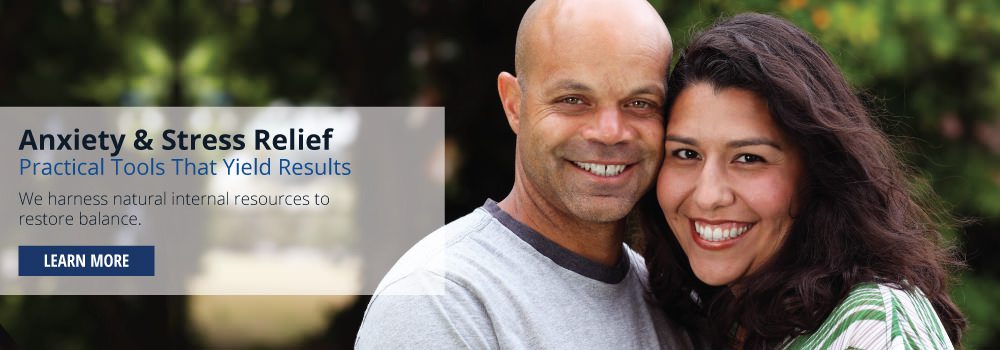Among the most common complaints therapists hear on a daily basis are those of Anxiety & Stress. Our brains are very responsive to the need to notice and act on stimuli (reference: The Developing Mind; Daniel Siegel, MD; The Guilford Press, 1999)
Most therapists would agree that we are too busy and over-stimulated these days. For example, notice how much video stimulation we have on a daily basis: we have our computers, smart phones, tvs, ipods, ipads etc etc!!! There are so many systems to monitor: regular mail, email, text messaging, land line, cell, fax, facebook, twitter…the list goes on!
It is my experience that most people have very limited experience with what we call resourcing (drawing strength from important relationships and ourselves), mindfulness, calming techniques and general relaxation. We just don’t typically realize how stressed we are, know what to do to relax and/or invest in taking care of ourselves…until our bodies are screaming at us!
I employ two tools to calm and process anxiety and stress:
*Autogenic (self-generating) Relaxation Training
*Brainspotting
These methods work well together to provide the calm centeredness needed to then process difficult feelings and issues in a gentle but effective way. I work closely with each person to establish a connection with the resources they are comfortable with (many times faith-based) and then reinforce and build on that so that relational strengths are built in, even as pain is processed out-resulting in a much more pleasing internal state.
Recovery always includes changing the way we THINK as well. This is critical because we are far more affected by what we think than most people realize. We must take every thought captive and tell ourselves the truth. Believe it or not, this has become a science called Cognitive Behavior Therapy. There are three common problems here: over-thinking on problems, often believing the worst (obsessing), borrowing trouble (living in the future or past: “what if” thinking and “if only” or “I did it” thinking), and catastrophizing (the worst is sure to happen). These are just some of the ways we create problems for ourselves.
At times anxiety and/or depression become severe enough that it makes sense to consider medical help in addition to psychotherapy and the tools mentioned here. In my experience, the combination of medication and psychotherapy can be more effective in these cases. To read more about anxiety elsewhere I’d recommend WebMD: http://www.webmd.com/anxiety-panic/guide/anxiety-panic-guide-overview-facts
Balance is a good word here. With practice we CAN change the way we think, reduce the stress and distress in our lives and build our internal resources, leading to healthier bodies and lives!



